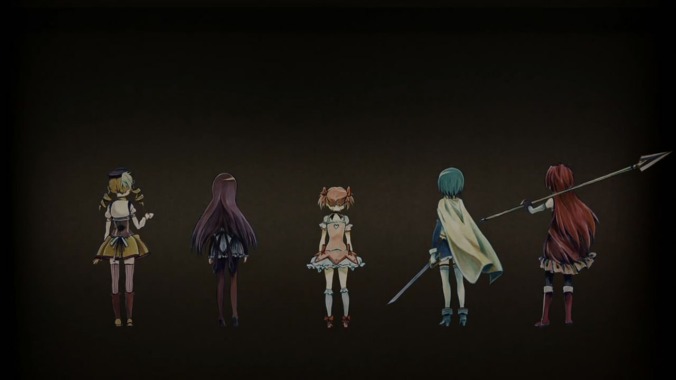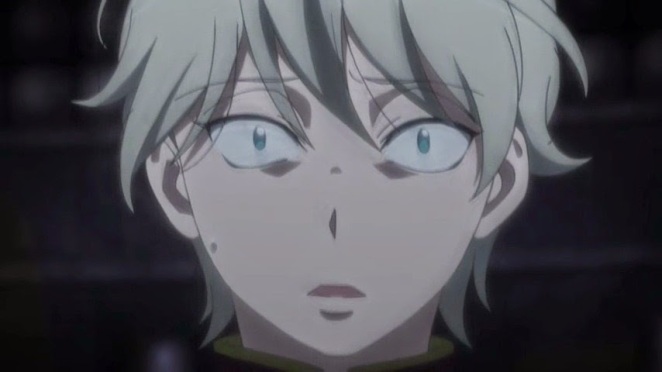Management: This essay is meant to be less of a review and more of analysis of the show being examined. It contains plot spoilers for the Puella Magi Madoka Magica anime.

Since its release, a lot of buzz has been made about Puella Magi Madoka Magica as this revolutionary deconstruction of the mahou shoujo, or magical girl, genre. A lot of bickering and controversy has ensued from arguments pertaining to deconstruction: about whether Madoka Magica qualifies as a deconstruction and whether its supposedly nature as a deconstruction is meaningful. It’s true that the writing of Madoka Magica subverts myriad elements of magical girl anime into a variety of horrific scenarios. It’s true that those subversions do violence to preconceived notions of what magical girl anime could be until now.
But as far as the connotations of revolutionary are concerned, Madoka Magica doesn’t really overturn anything in the magical girl genre that is worth a revolution. More than a few prior and acclaimed magical girl shows have already played with darker themes and sterner material, if not quite to the degree of Madoka Magica. Furthermore, Madoka Magica doesn’t really dissect any of the troubling subtext that the magical girl genre has a history of presenting. Magical girl anime has a record of being vehicles for capitalist consumption in the form of selling toys and other merchandise. Magical girl anime has a past of placing limits on the girls they claim to empower by retiring them from action before they grow up.
But even whilst magical girl shows moved product into family households and placed limits on what young women were allowed to do, the magical girls themselves were doing other things that weren’t questionable and were in fact quite admirable. They fought for others out of a sense of community and altruism. They saved and protected people because they believed were worth saving and protecting. Magical girl anime showcased kindness and heroism as good things. They taught compassion and community as principles worth emulating. And yet, it’s these virtues that Madoka Magica scrutinizes in its take on magical girls, and not the others. But why these qualities? Is there something so sinister about them that they need to be proven as entirely disingenuous?
Not sinister, in Madoka Magica‘s case, but naive.
Not naive in that everyone who believes in ideals are naive or foolish.
Naive in that it’s challenging to stay fully committed to them in real life for long.


On storyboards, modern fictional heroes such as magical girls can make it look so easy folks to be better versions of themselves for their communities. By contrast, the newspapers can make it look like people are little more than animals, with their communities being little better. If you will, imagine, visually, the human lifespan: people being kids and people becoming adults. Your average well-adjusted first-world child is probably informed by the optimism of the superhero media that they regularly consume. Their optimism becomes tempered by knowledge of how malicious and indifferent people continue to be with each other. They look back to their superhero media of yonder and re-evaluate their relationships with them. They make a determination. Do they break up with their old stories like a spouse who’s discovered evidence of cheating? Do they reject their old heroes for betraying their trust by speaking lies or half-truths? Or do they negotiate a different understanding with them because, at the end of the day, you can’t help but wish for the naivety to be true?
To me, the depth of Madoka Magica lies less in its debated worth as a magical girl deconstruction and more in its painful resonance as a critique of the Enlightenment through the magical girl genre. The darkness in Madoka Magica is not so much an exercise in self-indulgent edginess as it is a reflection of the systematic coldness and callousness of postmodern living. In many ways, the thematic priorities of magical girl anime, as with other works of heroism, reflect hopeful Enlightenment assumptions: an optimism towards humanity and an idealism toward humanity’s future. As is per convention, the magical girl heroine fights for people and the world because of the underlying assumption that they are universally worth saving. Madoka Magica challenges that convention by portraying these same people and the very world as the cause of their suffering. Compassion in contemporary society not so much demonized as it is sparing, and cruelty of postmodern life seems so profusive as to be unstoppable.

